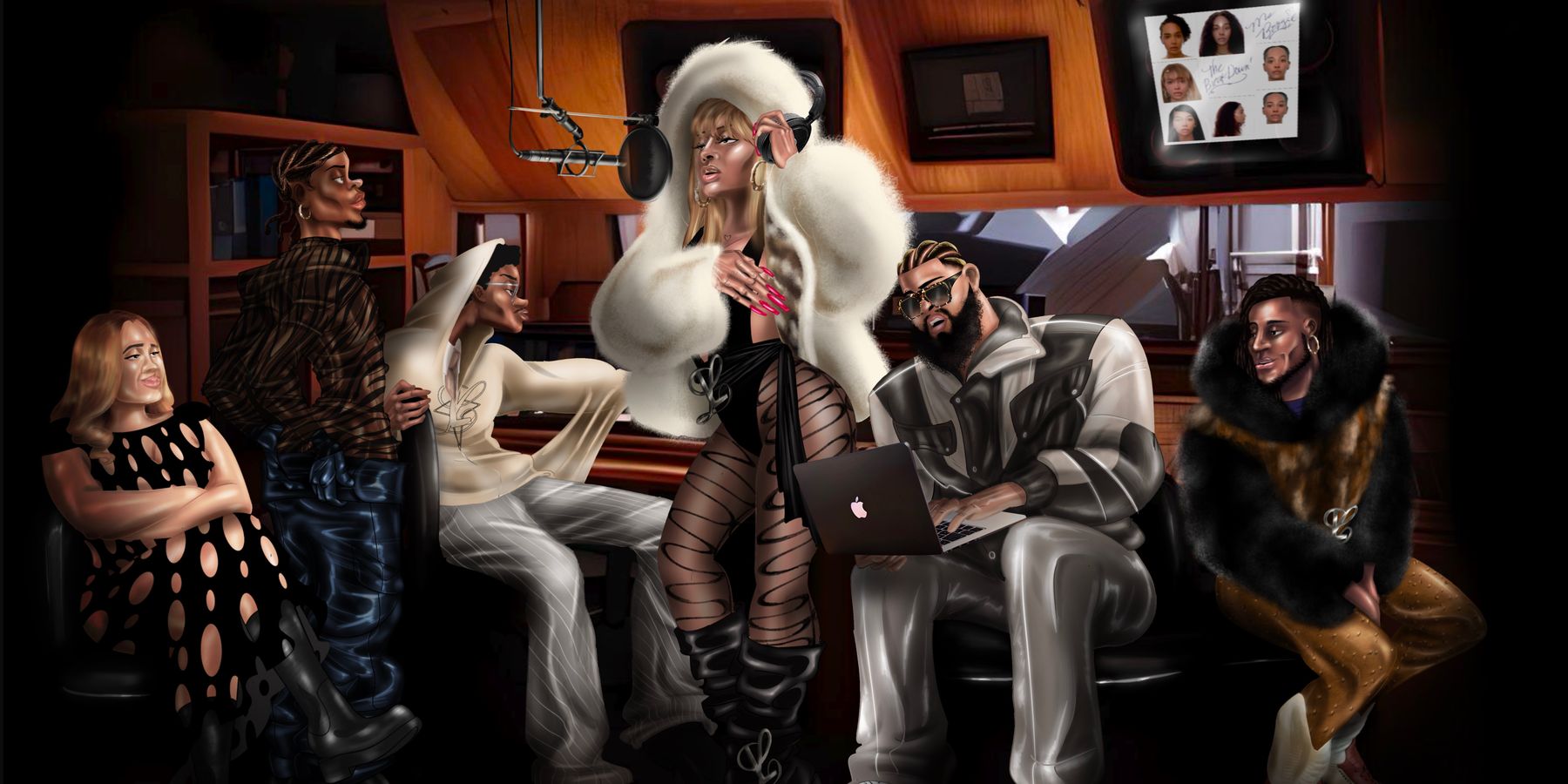
A Radical Oral History of Ms. Boogie's 'The Breakdown'
Story by Erica Campbell / Illustrations by Terrell VilliersMar 12, 2024

In 2018, Rose Isabel Rayos penned an open letter in PAPER officially introducing herself to the world as Ms. Boogie. “Dear friends, family and believers, life is a transition and I believe that we are all transitioning; we are all transitioning at the same time, at a different pace, toward the same direction called destiny,” she wrote. “I am currently evolving; I have been evolving since the beginning of my time and I will never stop evolving. In a practical world, I would be a ‘trans woman,’ but in the world that I have built for myself and my loved ones, I am simply myself.”
In the leadup to her debut album — one that would focus on what it means to have “an entire metamorphosis of self,” as collaborator Blu Bone describes it — Boogie had already given “so much to the scene already.”
In 2014, Boogie released Allure, which highlighted ballroom culture and the emcee’s Dominican roots. It came with the breakout hit “Body,” an ode to body autonomy that showed off Boogie’s flow and lyrical prowess. Boogie dropped My H.O.E. the following year, a testament to self-perseverance in mixtape form. 2017’s Jesus Loves Me Too came brimming with religious symbolism from Boogie’s Catholic upbringing, words of motivation and clapbacks to conventional beliefs. In 2018, she dropped “Morphin Time,” followed by 2020’s “Fem Queen,” an anthem centered on the depth and beauty of Black trans joy, featuring Trannilish. And, of course, there’s 2021’s “Dickscipline,” a riveting, steamy, rallying call for sexual adulation.
When Boogie wasn’t flowing with dexterity on her own tracks, she lent a verse to Kelela’s single “LMK” with CupcakKe, Junglepussy and Princess Nokia, and took part in high-profile collabs with Mugler. These moments all led to Ms. Boogie's debut album, The Breakdown, a Brooklyn Drill odyssey that gives listeners a raw and real look at the inner worlds of trans women and sex workers, pulling back the curtain and telling a story in a way only Boogie could.
The Breakdown wouldn’t have happened had it not been for the team of Black and queer creatives who were magnetized to the project, meeting organically over their shared love of music. “The greatest thing about the album is that when the writers or producers would send me stuff, I could tell that they were researching my story, researching my sound,” Ms. Boogie tells PAPER. “They were digging into the crates to find out what would be futuristic for me.”
Ms. Boogie first connected with writer and A&R Blu Bone, which led her to producer M Jamison (Boo Boo) and writer Cassius Cruz. Those branches connected her to producers Jobanny and El Joven, and the five of them worked together to not only create an album but, as Ms. Boogie says, “a language we could all understand.” In a roundtable discussion moderated by PAPER, The Breakdown’s creative collaborators discuss the makeup of the album’s tracks from ideation to release and how, according to El Joven, “the project was an opportunity to create a new future.”
The following conversation has been edited and condensed for clarity.
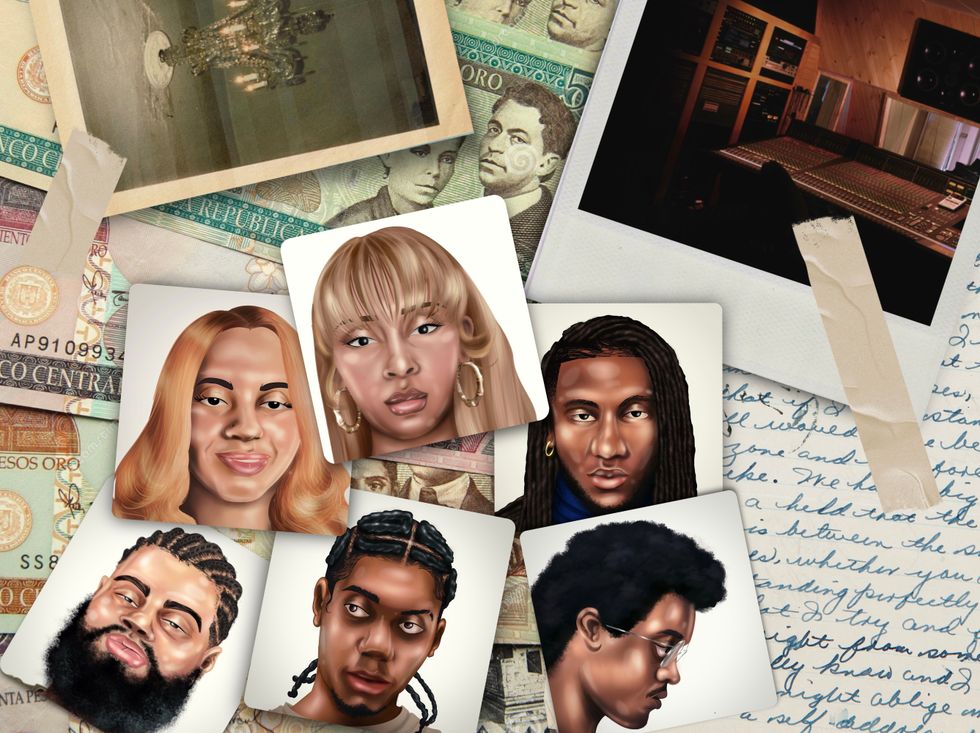
Ms. Boogie: I’m really, truly just the subject here. These individuals are all the designers, the architects, the engineers. I'm just really proud to be the subject.
Blu Bone: We had been praying about it and trying to put flesh to this thing for almost two years before a demo ever got cut. That was my perspective and vantage point with it all. It's magical to watch it come into full bloom outside of the cocoon, but it took so long.
Boo Boo: I remember the first time I ever heard a Ms. Boogie track. Blu had posted a snippet [of “Fem Queen”] on Instagram. I was still very early in my transition and I heard something that I had never heard before: my own experience reflected in music. I was taken aback. I latched onto it. Getting through the city, taking public transport as a young trans woman, it helped me keep moving. When Blu said, “I'm helping Ms. Boogie to get this album moving,” I was like, Oh my gosh, am I up to this? But as soon as Rose [Ms. Boogie] sent me a DM like “I need some beats for this album” I was like, This can be real. I felt so compelled. Now, there are nine records that all the young trans girls can listen to that can help them push through.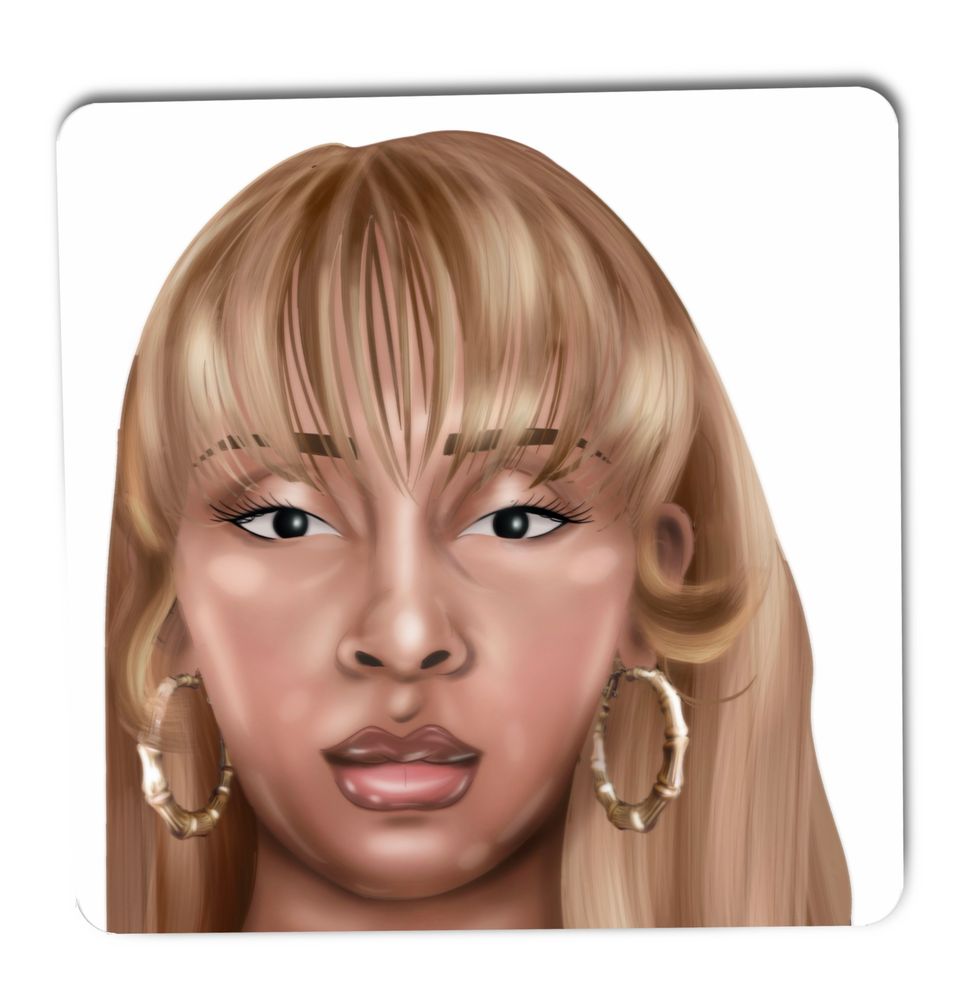
Ms. Boogie (Rose)
El Joven: What got me interested in the project was the opportunity to assist someone in creating a new future, both for themselves and for anyone who gets the opportunity to listen or relate. And not just a new future in terms of the metamorphosis that was going on, but also just sonically, which is the thing that I'm always interested in, the opportunity to experiment and create new avenues for communication through sound. Having Boo Boo as a subconscious sparring partner in all of this, being in the atmosphere of everyone else and everyone bringing their A-game was the most marvelous part of it.
Jobanny: I remember Cassius hitting me up, saying, “I've been working with this person, they're really cool, they have a good story, they really love music.” I really just make music for the love of it, and that's what attracted me to Rosa. We connected musically and made a lot of demo tracks. When I was asked to be a part of the project, that was the first time anyone has ever trusted me to be a part of something of this magnitude. I was very grateful and everyone was inspiring. I was able to be a part of the whole process and see everything start from scratch. It was beautiful to see.

Blu Bone
Let’s dig into the opener and title track, “Breakdown.” What was the inspiration behind it?
Ms. Boogie: It's not only track number one on The Breakdown, but it's truly track number one in the inception of the album. That was really the first demo that Boo Boo and Blu conjured up. Blu wrote the record, in collaboration with Boo Boo who produced it, and they gifted it to me, I like to say. It was the first time I was able to hear music coming from such parallel universes. There wasn’t much of a direction for it, Blu and I were just like “Okay, let’s go.”
Blu Bone: “Breakdown,” track one. Sonically, the assassin. We were thinking militant, I used to go by “Bush Queen Militant,” that was my whole shebang, sheboodle. So I was thinking, what’s the Femme Queen Militant like? So: galactic, pitch black, coming through with blades and bayonets. Lyrically and sonically it needed to do that. Rose had just released the anthem that shook up New York and shook up the world, “Fem Queen,” and it shook up the girls, it shook up everything, of course, it shook up [Boo Boo]. Boo Boo had made a couple of beats, the first two were for “Breakdown” and “Clipped.” I was trying to get Rose to hear these beats, but it wasn’t landing for her. So, I was like, Let me put a pen to this so she can get the picture real quick. She was like, “Okay, that I can get with.” That same night, Rose wrote the rest of the record, like “Ripley, believe it/ Chicago, deep dish” and the story was told. Then, track two... I’ll let Rose get into that. But after track one, it was like, this is a ride we’re all gonna take together.
Boo Boo: I had been listening to “Fem Queen” that whole summer and that drill sound. “Fem Queen” drove me sick. I had always been into trap music and hip-hop and also expanding what hip-hop can be, pushing it to the next stage. I think women in hip-hop have always been doing that. I really wanted to give Ms. Boogie something that could fit into this world of hip-hop, but also this new place we were creating. I was also dealing with a lot of rage around existing in this world as a trans woman. I was channeling a lot of that frustration [into “Clipped”] and trying to let it out. When I heard what was being written on the track, I couldn’t have imagined anything more perfect and succinct for what I was feeling in the moment.
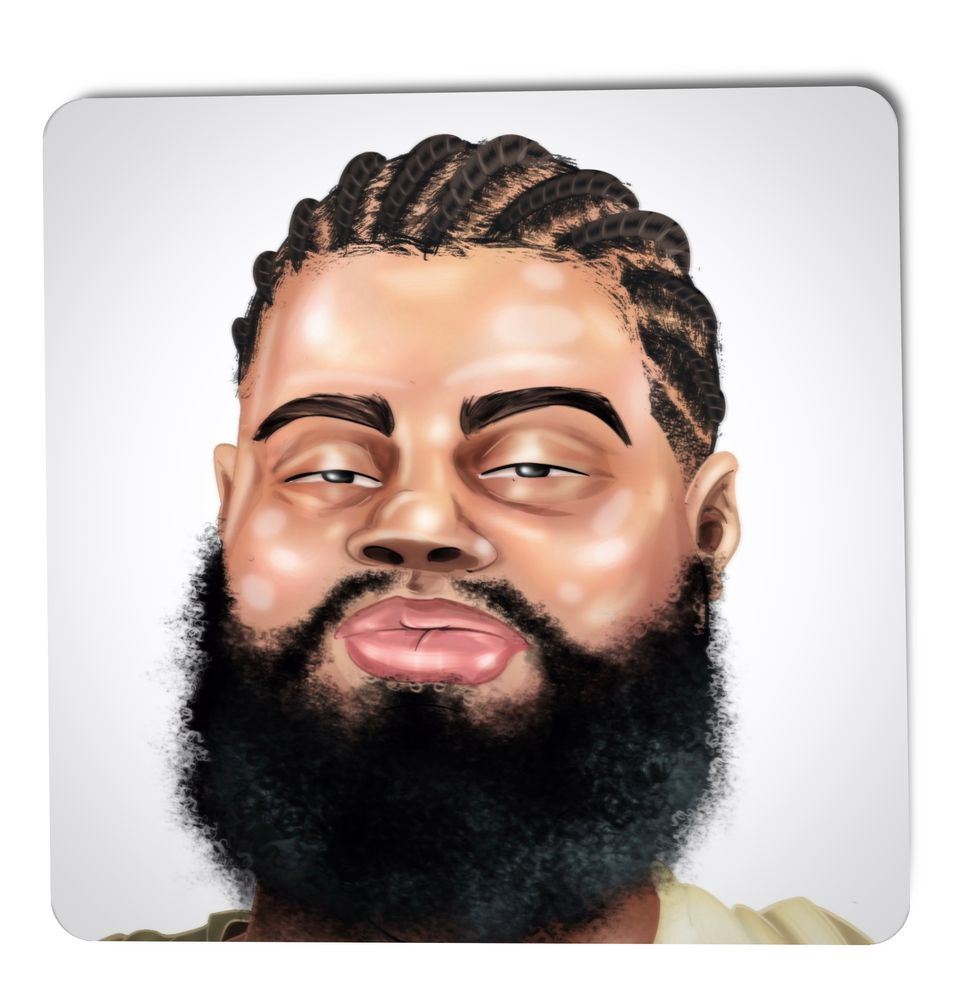
Jobanny
Ms. Boogie: I love that Boo Boo brought up the exploration and reinterpretation of what drill music meant for us and just being able to take a lot of what is considered normative or popular and experiencing how we as queer, Black bodies exist within pop culture. There has to be a very intentional segueing into a universe in order to really allow us to feel seen or heard in the genres or in the lyricism. That was a very big intention in Breakdown, reinterpreting what drill meant to us. Drill has a very big chokehold on hip-hop and New York City in general, and after coming from “Fem Queen,” which was already a drill beat and a song that I remixed, it was important to put that finishing touch on my relationship with drill. I vowed to — I won’t say I’ll never touch it again, but I just had to give my contribution to the culture and to a sound that was very much an anthem to my surroundings that summer and Brooklyn in general. I'm very used to being left out of a lot of conversations in the world, so when we made “Breakdown,” that was the symbol we intended to create.
Boo Boo produced “Clipped.” I have a screenshot of the first time she ever sent it to me. I wrote it in this room right here, fresh off of a breakup. The real mission behind “Clipped” was to tell my side of the story [about] a relationship that was not conducive to my well-being, and it felt really good to be able to write that record and get on a record produced by a woman like me who could understand everything that I’m saying on it. It was truly a call and response, I don’t think we made too many edits to that song. It was straight from the paper to the microphone into Boo Boo’s hands. It’s one of those songs that lyrically, sonically, is what it is. There’s no fluff to the story. Everything that happens in that song was something that was actually happening at that time. I feel like a lot of times you write from a retrospective point of view from different eras of our lives, but this was very autobiographical in that way. It’s a very special song. It’s a song that teleported me to another place. The beat almost had this tropical feel to it. It was whimsical, it was refreshing, and that really allowed me to heal from what was going on. After I finished writing the song, I was like, Okay, nothing else is left. I'm never revisiting this relationship. I'm never talking to him again. I'm never bringing it up. That was my final say. I hope he heard it too.
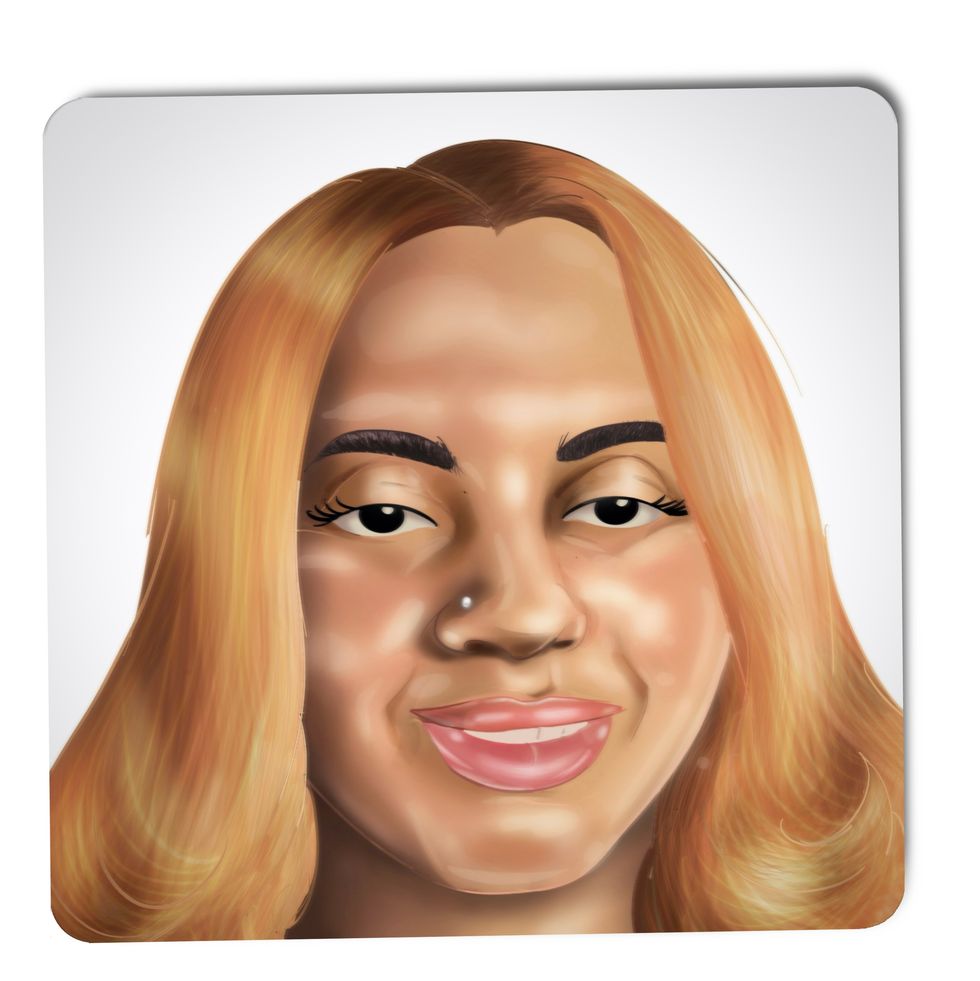
Boo Boo (M Jamison)
Blu Bone: The dynamic early on with Breakdown was, Okay, we’re about to do this, but with “Clipped” it was like, she’s about to do this. Like, it's a story that only [Ms. Boogie] could tell. We were writers and musicians brought into the picture to help her tell this story. That is one of, if not the strongest song on the record.
Jobanny: Facts. That's my favorite song off the record. I will say that beat goes hard. That song just happened — it was meant to be. It needed to be out there, it needed to be a part of the project.
What do you hope listeners walk away with after they hear The Breakdown?
Boo Boo: Thinking about the role I played, I really want other Black, trans producers and composers to see this as an example. Because oftentimes, I think with music production, it's a boy’s world. I really want girls to see that they can step into that role. So they can see that they can be on the boards and engineering, I hope I play a role in what people can see themselves doing.
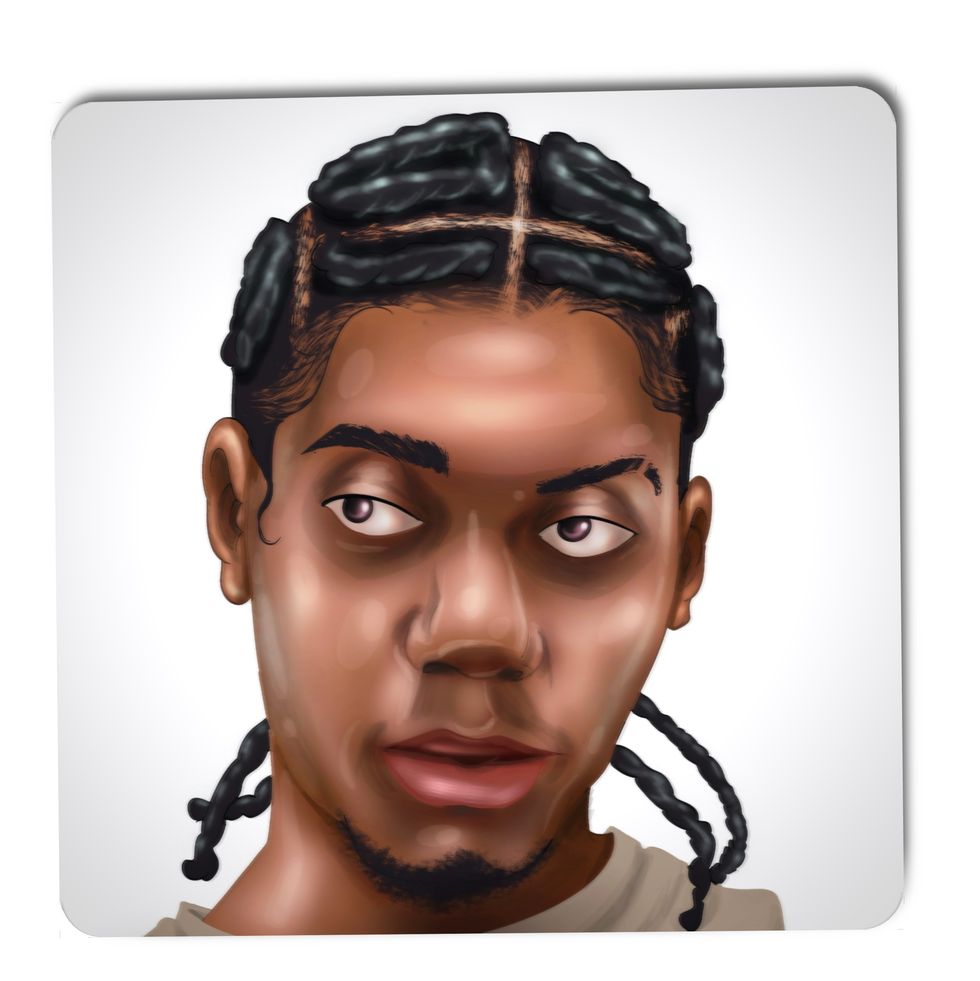
Cassius Cruz
Cassius Cruz: I share the sentiment of the people who aren’t making the music. I hope that through this album they can see themselves in a new light. There is a popular thread in our culture of what you can be and what you need to be and what’s popping and what kind of girl you got to be. I want people to hear this and say, “Oh, there's this aesthetic too, and I can actually express my deep sentiments and it doesn't have to be shit-talking.” I love shit-talking, but I want all of it to exist together. A lot of times, people only want to hear that from you, and when you really start to talk about what’s here [gestures to heart] it’s not marketable, it’s not pop.
So for artists and for people, I want us to feel comfortable with making choices in our lives that center us — as in feminine people, as in queer people — in stuff that's not for the consumption of like, men and masculine people, because there's a lot they make us feel ashamed about — our unbridled femininity, you know, there's a lot there. There's a lot to be learned from us. There's a lot to be learned. And there's a lot of power in that. So that's what I want people to feel from this project. That's what's important to me.
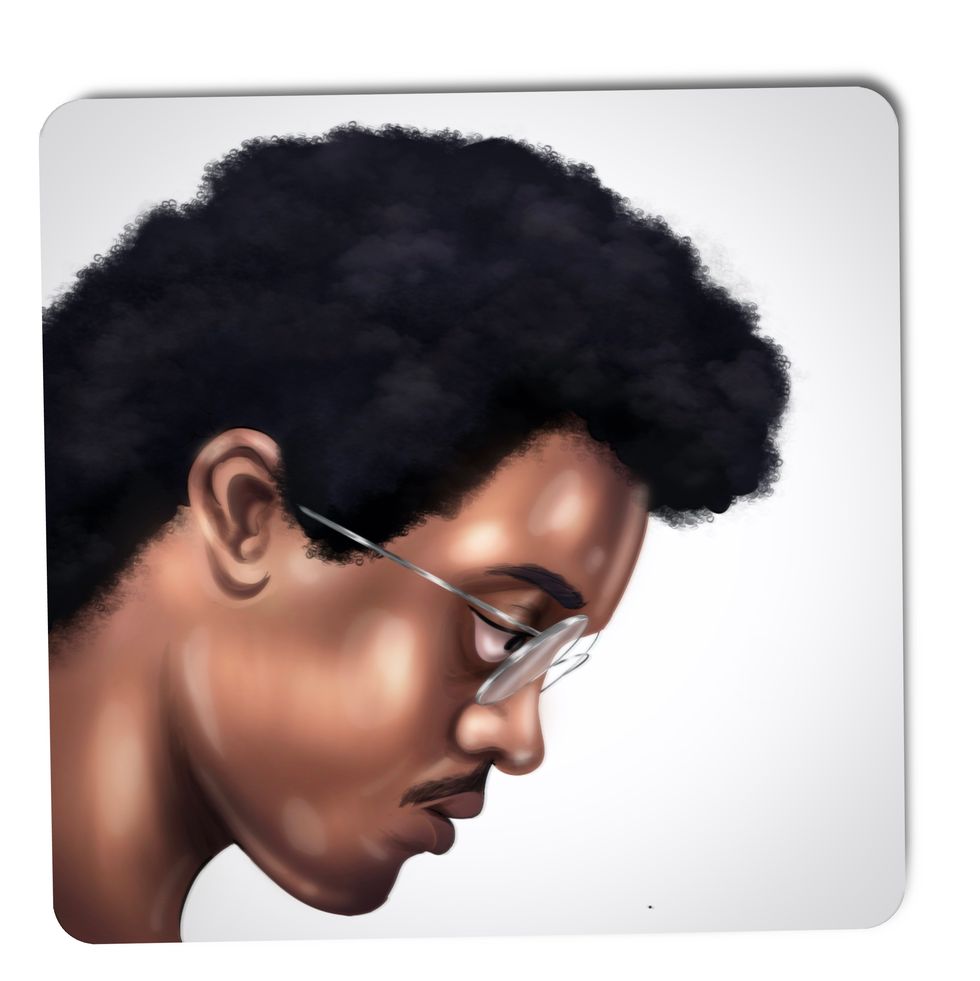
El Joven
Ms. Boogie: I understand that intention sometimes varies from what the impact can be on different people. Although my intentions do revolve around inclusion and the power of creating a collective of people who genuinely relate to each other in real life, not just on a professional level or creative level per se. I really want to highlight that power, intentionally bringing people together because of their stories, not just their skills or what — like Cassius said — is marketable or valuable. I also want to piggyback off Boo Boo: I want girls to understand that there's more to do outside of the sensationalism of being the performer, being the girl on stage, being the girl with the microphone.
Also, outside of the communal effect I want people who aren't of our experiences to understand that there aren't many things that set us apart. I hope when they listen to this they... I wouldn't say humanize the experience because I want them to understand that it's not about permission, it's not about acceptance, it's about existence. It’s, Let me exist, I’ll let you exist. And if not, then we can go toe to toe. The track “Come Again” is about that. Again, experiencing us outside of sensationalism is something that we have not seen on a mass level. We have different examples of what it looks like to be a queer Black person making music in the realm of, of hip-hop, but there's more to the story.
I’m hypersensitive, but I want to encourage girls to lean into that hypersensitivity and that awareness, and not always try to assimilate to what's going on. We haven't really created popular culture, and we might not ever be a part of it, but we might have the power to create our own.

Illustrations: Terrell Villiers
Clothing: Luar